At the core of Stranger Things there is a question: how can we come to terms with the inevitable loss of childhood hope and innocence, as they give way to the darkness of adult life? This theme is embedded in the characters’ journeys, the symbolism the show employs, and the feelings of at least its adult viewers, as we embrace the nostalgia for our younger days that the show invokes.
The ‘80s setting and the nostalgia that permeates Stranger Things have always been a big draw, but many see these elements as cheap gimmicks. On the contrary, I would argue that they are necessary aspects of the show that act to meaningfully engage viewers with its central theme. We all have our own demons to face. As tough and painful as adult life can be, who doesn’t long to return to a simpler time?
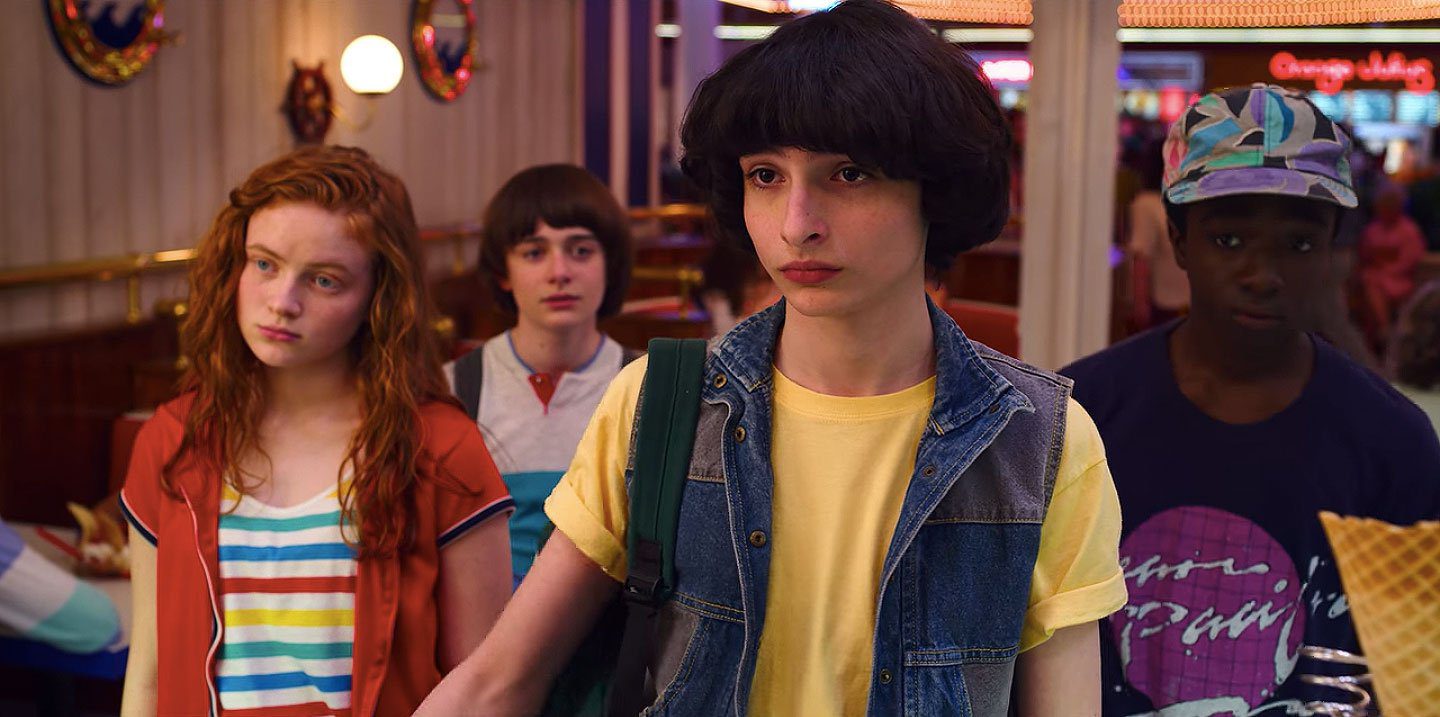
We watch Stranger Things looking for an escape, and hoping for answers. We live in the darkness every day. Loved ones die, friendships fall apart, romantic relationships either don’t materialize or lead to heartbreak, ambitions go unfulfilled, dead-end jobs don’t cover the cost of living, student debts are high, wages are stagnant, disillusionment sets in, governments are corrupt, the environment is fucked, physical health fails, mental illness takes its toll. This is where our nostalgia comes from. It’s a reaction against our current reality. This is why we long to return to our childhoods and to the ‘80s, and why we connect so strongly to Stranger Things.
Part fantasy and part horror, Stranger Things often uses metaphors and symbolism to address its themes. Time and time again, horror movies and TV shows have transformed our intangible fears and concerns into monsters—a comforting idea because then they can actually be fought. So it is here that the darkness of adult life is turned into the Upside Down and its monsters, the Demogorgon and the Mind Flayer.
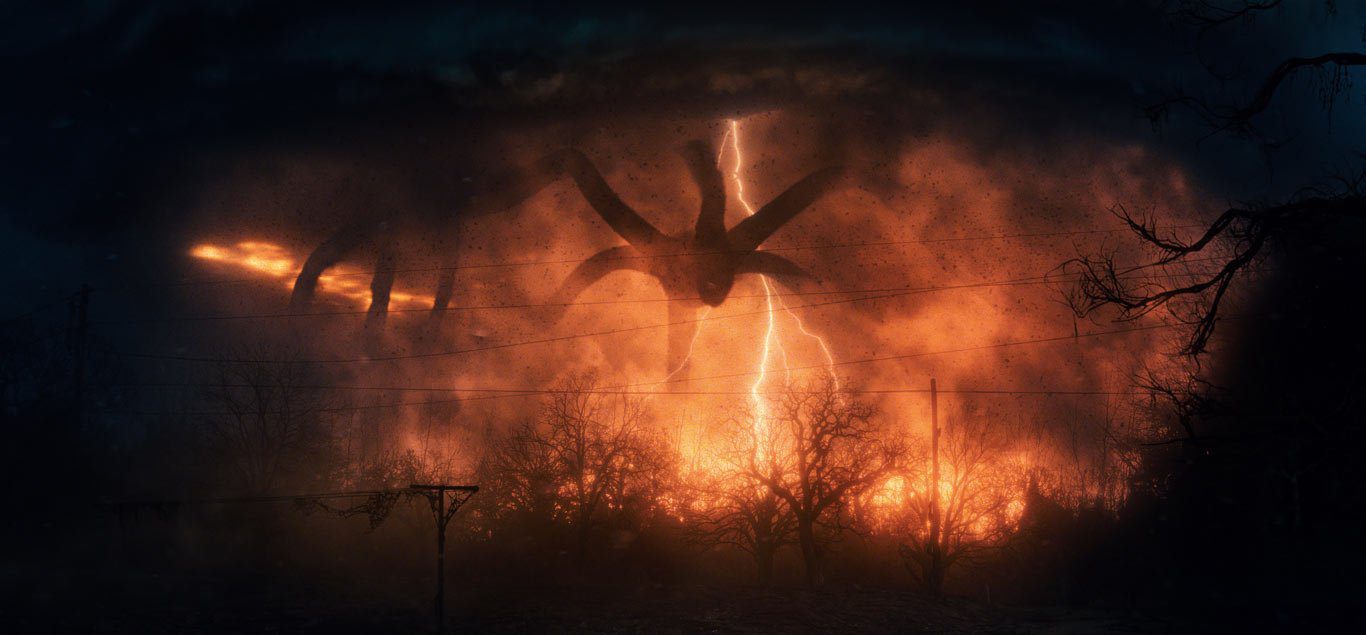
When these monsters face off against our favorite group of ‘80s kids, on some level we get to watch our former selves actually defeat adulthood. Of course, the monsters keep coming back every season, since adulthood can only ever be delayed. The Upside Down is described by the kids as a dark reflection of the regular world, filled with decay, death and monsters—kind of like how the world adults live in looks just like the world that children live in, but with a lot more death and darkness.
In the world of Stranger Things, water is strongly associated with moving towards the Upside Down (either literally or metaphorically, bearing in mind that the Upside Down itself represents the darkness of adult life). The Upside Down even looks like it’s underwater, due to the ever-present floating particles there. Brenner, and later Eleven herself, uses a sensory deprivation tank (filled with water) to help Eleven find people with her powers—an act which seems to connect her to the Upside Down. The space Eleven occupies when she does this is presented as a pitch-black expanse with water on the ground. We’ve seen that people possessed by the Mind Flayer like to take baths filled with ice, since he “likes it cold”.
Swimming pools are fascinating in this context. Barb is pulled into the Upside Down and killed in Steve’s pool. Billy and Heather both work as lifeguards at the public pool, and both end up being possessed by the Mind Flayer, leading to their eventual deaths. However, it goes deeper than this, as pools are in fact associated with moral low points for several characters. Steve, Nancy, Tommy and Carol put a lot of peer pressure on Barb at Steve’s poolside party, making her feel very uncomfortable. Nancy then neglects Barb for her new love interest, Steve, simply telling Barb to go home.
While there’s nothing wrong with Nancy having sex with Steve, and she obviously couldn’t have predicted that a monster from another dimension would kill Barb, Nancy does dismiss Barb’s feelings of discomfort throughout the evening. It can be tough to feel like a friend no longer wants to prioritize the friendship, as so often happens when we grow up and romance enters the picture. Jonathan is also present throughout these scenes—lurking in the bushes—and his decision to secretly take photos of Nancy getting changed is likewise a low point for his character.
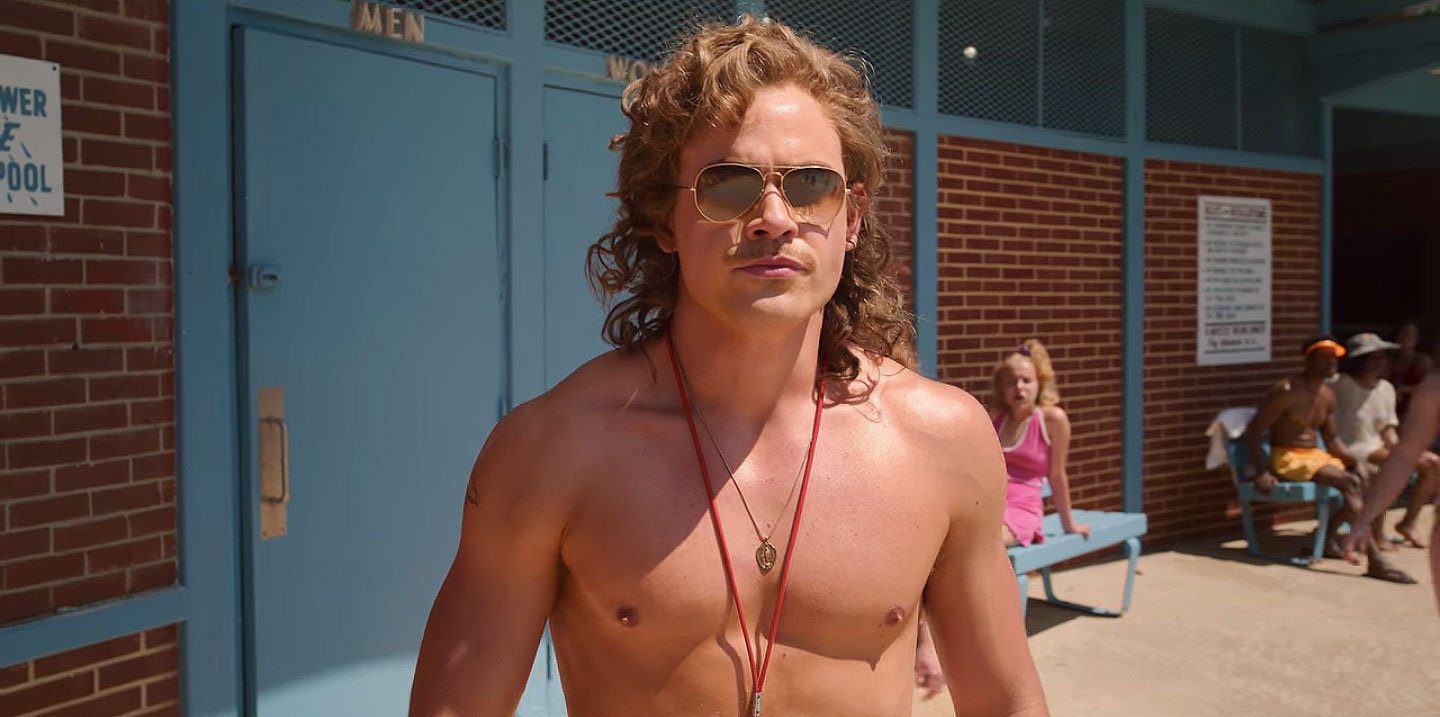
The public pool is where Karen Wheeler ogles and flirts shamelessly with Billy, and even arranges to meet him at a motel. She doesn’t go through with the tryst, but almost cheating on her husband would certainly count as a moral low point for her. After deciding not to do it, and apologizing to Billy for standing him up, Karen is not seen at the pool again. Interestingly, Karen and Billy’s first flirtatious meeting in Season 2 is also connected to water, as Karen is in the bath when Billy rings her doorbell (she answers wearing a robe).
Pretty much every time any form of water is seen on this show, it signifies something bad. When we’re first introduced to Hopper, we see him looking out over a lake and then taking a shower—he lives right on this lake, and at this point he’s still mired in grief over his daughter’s death. Benny (the diner owner who first finds and feeds Eleven) is washing dishes right before he’s shot and killed by a government agent. Will’s father, Lonnie, is in the shower when Joyce discovers that he only wants to make money by suing over Will’s death—he doesn’t actually care about Will. Will is washing his hands at the end of Season 1 when he coughs up a slug, revealing that he’s still connected to the Upside Down. Bob Newby (superhero) sees dripping water in the lab, then turns on the sprinklers to distract the Demodogs, minutes before he’s killed by them.
There’s a long sequence in Season 3 when a storm is raging in Hawkins, which concludes with Will telling Mike and Lucas that the Mind Flayer is back; Hopper being knocked out by Grigori (the Russian Terminator); Billy and Heather capturing Heather’s parents and giving them to the Mind Flayer; Nancy and Jonathan watching Mrs. Driscoll being taken away after they find her eating fertilizer; and the Scoops Troop first discovering armed Russians guarding boxes that are being moved into the mall.
Just as water is associated with moving towards the Upside Down, lights, heat and fire are associated with moving away from or fighting against it (again, sometimes literally, sometimes metaphorically). Obviously not every light represents this, since every scene is lit somehow, but there are some that particularly stand out or have attention drawn to them. Lights flicker whenever the Demogorgon or the Mind Flayer is about to leave the Upside Down to enter our world. Will uses flashing lights to communicate with Joyce and facilitate his rescue from the Upside Down. Fires, heaters, lighters, fireworks and even a sauna are used as weapons against the Mind Flayer.
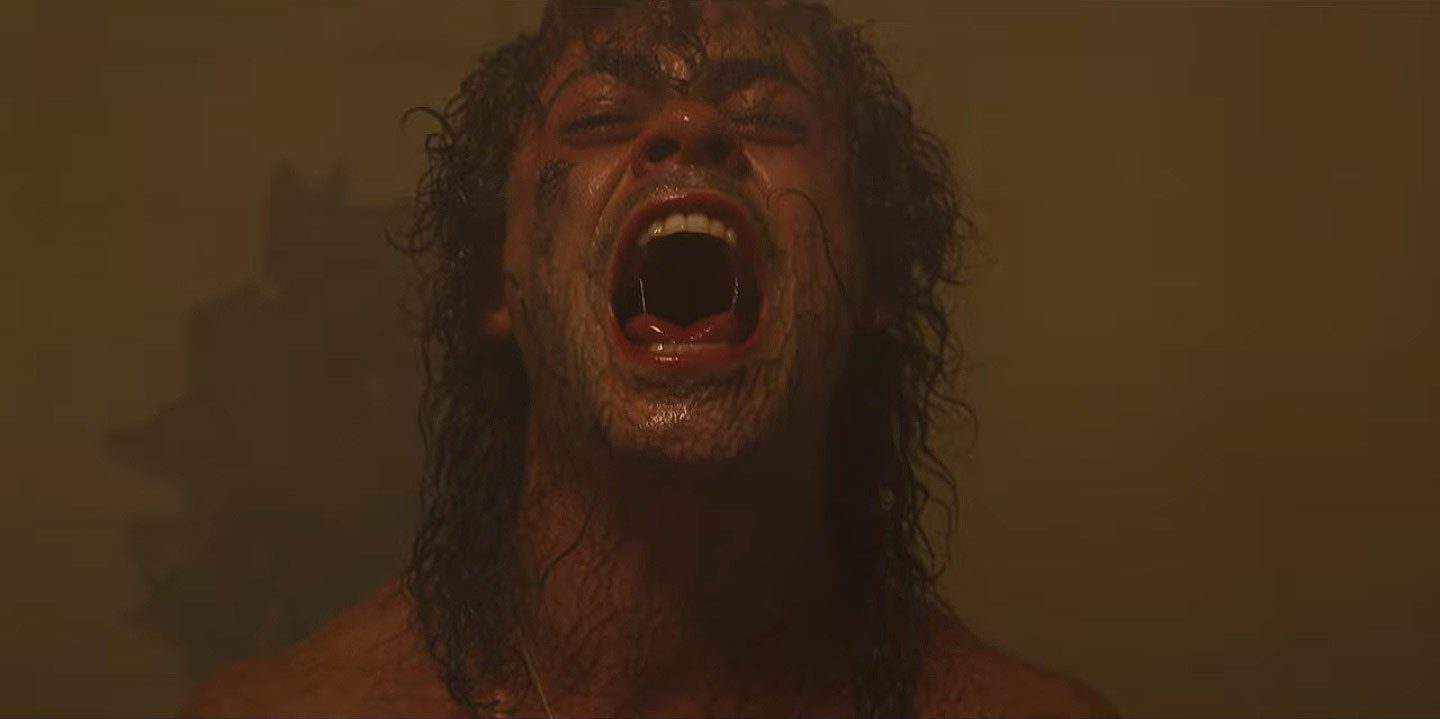
As a counterpoint to the pool scenes, several scenes involving lights represent characters’ positive moral turning points. A key moment for Steve in Season 1 is when he decides he should stop hanging out with Tommy and Carol, and he goes to clean up the graffiti they painted calling Nancy a slut—on the marquee of a movie theater, surrounded by lights. Steve also happens to be sitting next to a Christmas tree full of lights when he has Nancy give Jonathan a new camera, going some way towards making up for his jealous behavior towards Jonathan and his having broken Jonathan’s old camera.
In Season 3, having chosen not to have an affair with Billy, we see Karen enjoying the funfair with a newfound appreciation for her family. Karen, Ted and young Holly ride the Ferris wheel, stopping at the top to get the best view of the fireworks. In this scene they are surrounded by the lights of the fair and the Ferris wheel, and of course the fireworks themselves.
It’s just outside of this fair that Alexei tells Murray they should explode the key rather than just turn it off, thereby permanently shutting the gate to the Upside Down. For a short time, Alexei is allowed to enjoy the fun of the fair, playing games and winning a Woody Woodpecker toy, before he is heart-breakingly killed. This is a moral turning point for Alexei too, and the fairground lights symbolize the fact that he died fighting against the encroaching Upside Down.
Alexei’s death is redemptive, much like Billy’s, though less obviously so. Alexei may seem sweet and innocent with his love of Looney Tunes and cherry Slurpees, but he did knowingly open that gate to the Upside Down, and surely he holds some responsibility for the evil that came out of it and the deaths it caused. In the end though, beneath the lights of the fairground, he told our heroes how to correct his mistake and make things right—and then he died for it.
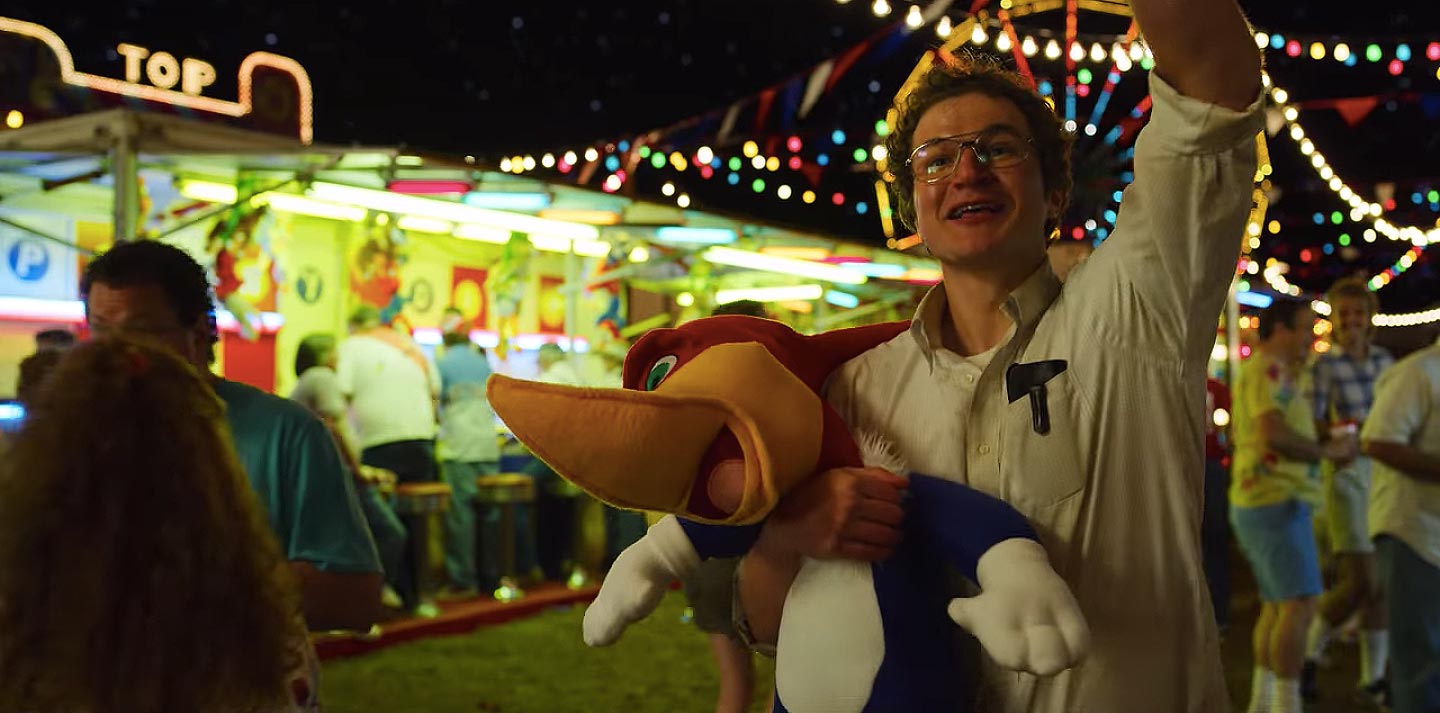
Interestingly, there’s a conspicuous lack of lights in one scene at the end of Season 1. The last sequence in the finale shows happy scenes full of Christmas lights, both at the Wheelers’ house and at the police station, but at the Byers’ house—where there have been Christmas lights all over the place for almost the entire season—there aren’t any now that it’s actually Christmas. This makes sense, since it’s when Will coughs up the Upside Down slug and we realize that the season’s ending isn’t such a happy one after all.
Stranger Things is an ensemble show, and much of the attention it gets is focused on the central group of kids. But who exactly is Stranger Things’ main character? You might be tempted say Will, since the plot of the first season revolves around him, but he’s barely even in that season (although Noah Schnapp does a phenomenal job of making us care about him so deeply in the few short scenes he has).
What about Mike? Is he a more significant character than Dustin or Lucas? We get to know his family better, and he certainly bonds with Eleven more in that pivotal first season, but what’s the core of his journey? Everyone wants to find Will, and a pre-teen romance with Eleven doesn’t seem like enough to sustain a series. How about Eleven? Getting closer, but I would argue that the main character is actually Jim Hopper.
We think the kids are the main characters because, watching the show, they’re the ones we want to be—the ones we want to relate to. But it’s Hopper we really relate to. Hopper is the one whose emotional journey embodies the show’s central theme, as he slowly learns how to cope with his grief over his daughter’s death. When Season 1 starts, Hopper has given in to grief, and given up any sense of hope or purpose. He pops pills and drinks his way through his days as the chief of police in Hawkins, where the most he’s had to handle in the past four years was an owl that attacked Eleanor Gillespie’s head because it thought that her hair was a nest.
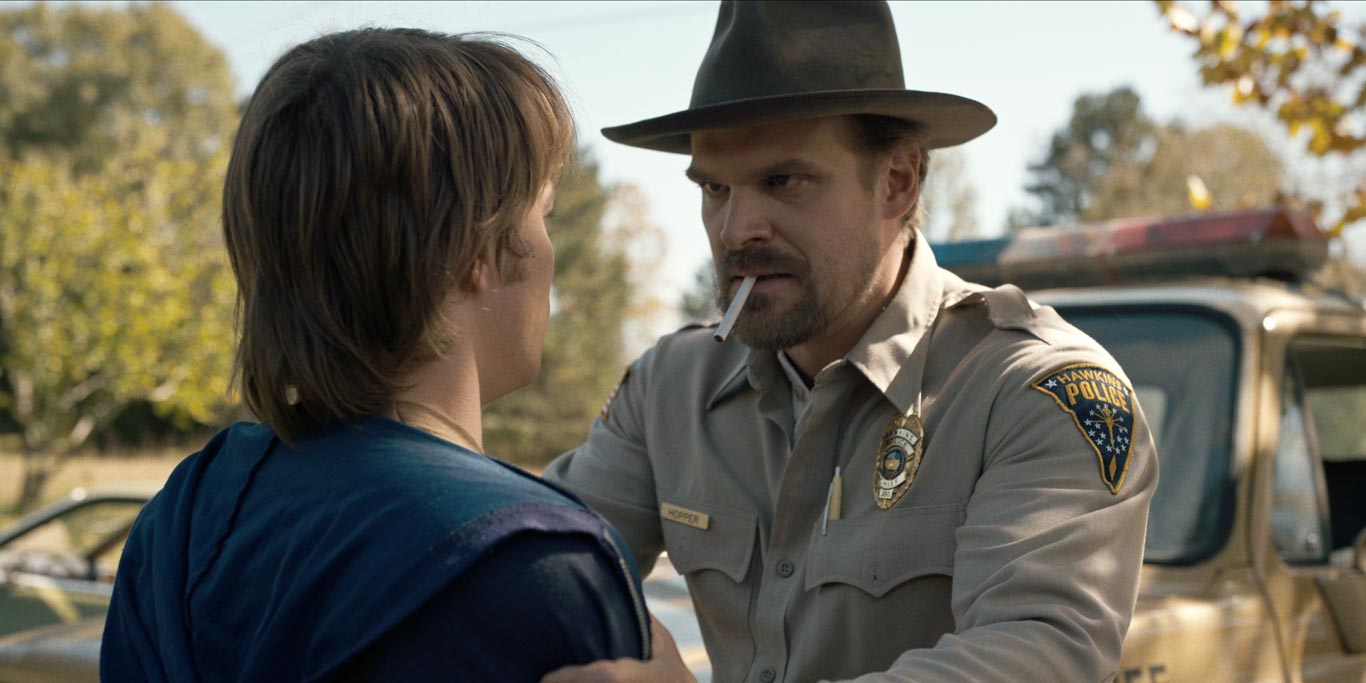
As the first season continues, it becomes clear that several major characters mirror aspects of Hopper’s own life. Joyce is a version of Hopper who still has a chance to save her child, just as Will is a child whom Hopper can still save, unlike his daughter, Sarah. Finally rescuing Will returns to Hopper some modicum of hope and purpose, as he transforms his grief into the motivation to protect other families from the suffering his own family faced.
In another instance of mirroring, Eleven is a child without parents, just as Hopper is a parent without a child. In Season 2, Hopper takes in Eleven when she is on the run from the government. Becoming a father again to a daughter who desperately needs one gives Hopper’s life even more meaning, though it is far from easy. Much of his journey throughout Seasons 2 and 3 revolves around working through his fear of losing another daughter, and learning to accept the risks inherent in allowing Eleven the freedom to live her life.
There are many arguments between Hopper and Eleven, and Hopper is certainly overbearing at times—no one is perfect, and like everyone, Hopper makes mistakes and eventually learns from them. Stranger Things isn’t a show to forget about the trauma of any of its characters, or to pretend that the issues stemming from that trauma could ever be solved in a single episode. Change is a long, ongoing process, and we see that with Hopper.
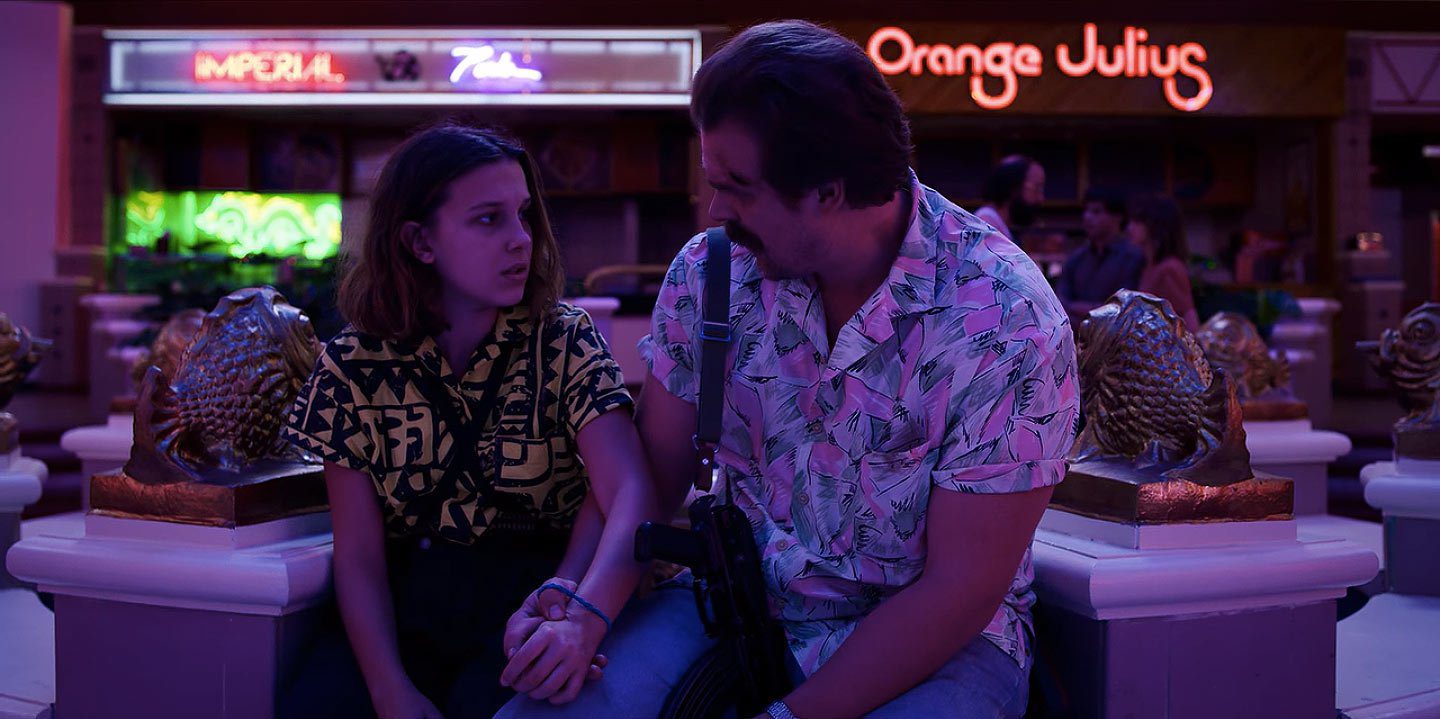
At the end of Season 3, after Hopper seemingly sacrifices his life to save the world, Joyce finds a speech that he wrote for Eleven. This speech, presented as an emotional voice-over after his death, perfectly encapsulates everything his character has learned over the series, as well as providing the viewer with a possible answer to the series’ central question.
There’s something I’ve been wanting to talk to you both about—and I know this is a difficult conversation. But I care about you both very much. And I know you care about each other very much and that’s why it’s important that we set these boundaries moving forward so we can build an environment where we all feel comfortable, trusted, and open to sharing our feelings…
Feelings. Jesus. The truth is, for so long, I’d forgotten what those even were. I’d been stuck in one place; in a cave, you might say: a deep, dark cave. And then I left some Eggos out in the woods, and you came into my life. For the first time in a long time, I started to feel things again. I started to feel happy.
But lately, I guess I’ve been feeling distant from you–like you’re pulling away from me, or something. I miss playing board games every night, making Triple Decker Eggo Extravaganzas at sunrise…watching Westerns together before we doze off.
But I know you’re getting older…growing…changing. I guess, if I’m being really honest, that’s what scares me. I don’t want things to change. So I think that’s maybe why I came in here…to stop that change…to turn back the clock…to make things go back to how they were. But I know that’s naive; that’s just not how life works. It’s moving, always moving, whether you like it or not.
And yeah, sometimes that’s painful. Sometimes it’s sad. And sometimes, it’s surprising…happy. So, you know what? Keep on growing up, kid. Don’t let me stop you. Make mistakes. Learn from them. When life hurts you, because it will, remember the hurt. The hurt is good. It means you’re out of that cave. But please—if you don’t mind, for the sake of your poor, old dad—keep the door open three inches.
Yes, it’s hard to cope with that loss of hope and innocence, with that inevitable darkness that goes hand in hand with adulthood, but Hopper reminds us (and himself) that the darkness and pain means we’re truly living, rather than just hiding in a cave—as Hopper was at the series’ start. The closure this speech brought to Hopper’s journey—as well as the catharsis and hope it brought to me as an adult who (as we all do) experiences pain and darkness—had me bawling my eyes out.
Is this truly the end of Hopper’s journey? Unlikely. There are enough clues in the finale to suggest that he will be back. In the post-credits scene, the Russian guards refer to “the American” in one of their prison cells, while Grigori (the Russian Terminator) also referred to Hopper as “the American” earlier in the episode. Not to mention the fact that at the end of the episode, following Hopper’s final speech, Peter Gabriel’s cover of “Heroes” plays. That same song was previously used in the show to accompany the discovery of Will’s fake body—you know, when everyone thought he was dead, but he really wasn’t.
Some characters in the show have had to face the darkness at a much younger age and to a much greater extent than anyone should have to. As children, both Eleven and Billy ended up trapped in environments where they were subjected to constant abuse from a supposed father figure, and neither had anyone else to turn to. Both were separated from their loving mothers—who were also abused—and forced to suffer at the hands of their “fathers”.
The similarities between Eleven and Billy’s backgrounds are actually striking—if you set aside the fact that Eleven has superpowers and was kept in a lab—but they both reacted to it in very different ways. Billy gave in to anger, and let that anger consume him, while Eleven remained open to human connection, often going out of her way to help others—but why?
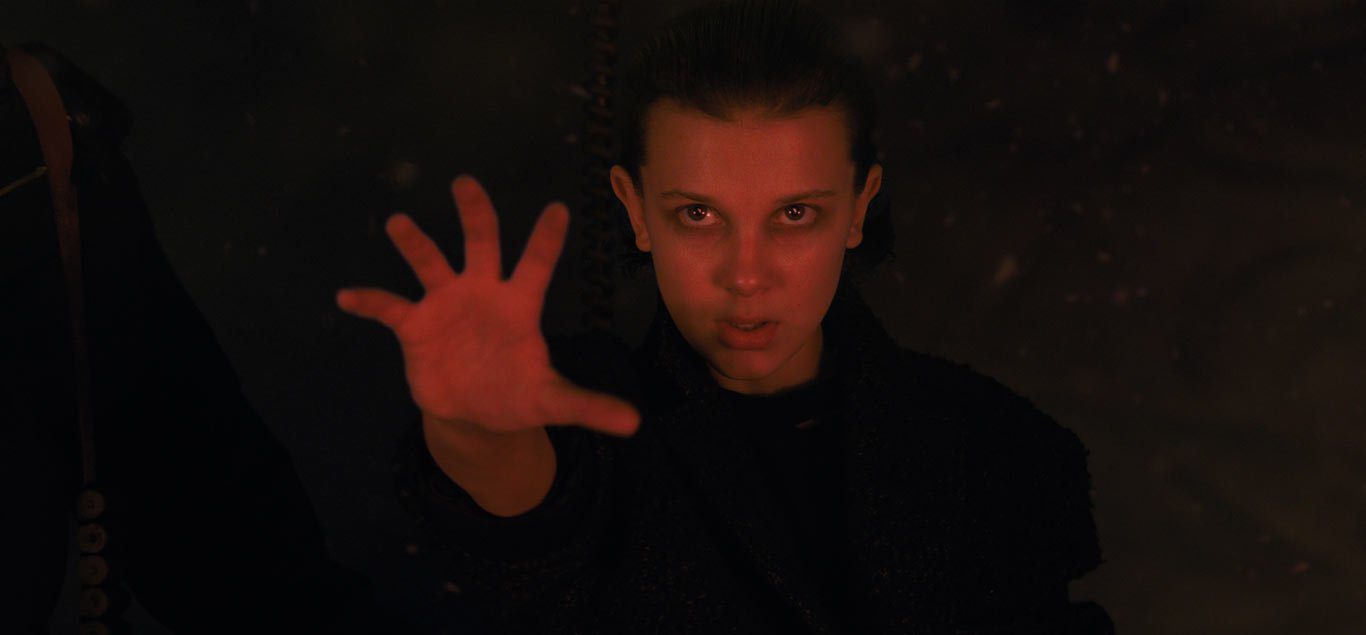
One major difference between Billy and Eleven is that Billy almost certainly feels abandoned by his mother, who left him to suffer at the hands of his abusive father. Eleven, on the other hand, didn’t even consider who her mother was for a long time, and when she did, it soon became clear that she was not given up willingly. If anything, Eleven had the opposite problem to being abandoned. Her mother fought so hard to get her back that she ended up catatonic, and Hopper wouldn’t let her leave his cabin for a year because he was so scared of losing her.
Another significant difference is that Billy never escaped from his abusive environment or had a chance to heal. Eleven was lucky that she encountered good people who truly cared about her, and who wanted to keep her safe, so soon after she escaped from the lab. Hopper may have made mistakes, but there is no doubt that he loved Eleven and he was trying his best. And before Hopper there was Mike, who earned Eleven’s trust, showed her genuine kindness and allowed her to see what friendship was.
None of this is to discount Eleven and Billy’s own agency and personal choices, but everyone’s choices are made for a reason, and it seems naïve to think that Eleven was just inherently good while Billy was inherently bad. This is in fact disproved when we see Billy’s memories, when we see him as a happy child, and when we finally see him fight against the Mind Flayer’s control over him.
Perhaps Eleven was able to get through to Billy precisely because they had such similar backgrounds. She understood what he had gone through, what had made him so angry and why he had given up. When she reminded him of his mother, she reminded him of the kindness in the world, like the kindness Mike and the others had shown her. That was what made her choose to fight against the darkness instead of giving in to it, and Billy made that same choice—fighting against the Mind Flayer and sacrificing himself to save Eleven.
Despite having faced so much darkness, Eleven is still just a child, and a lot of her journey revolves around reclaiming her childhood, her hope and her innocence. In fact, she often seems to be the most childlike of the main group, since she is still learning so much about the world and about herself. She truly believes in concepts like “friends don’t lie” and “a promise is something that you can’t break.” She believes in the goodness of people, even after everything she was subjected to by Brenner. She revels in new discoveries, including the deliciousness of Eggos, the concept of shopping, and the revelation that she can create her own style.
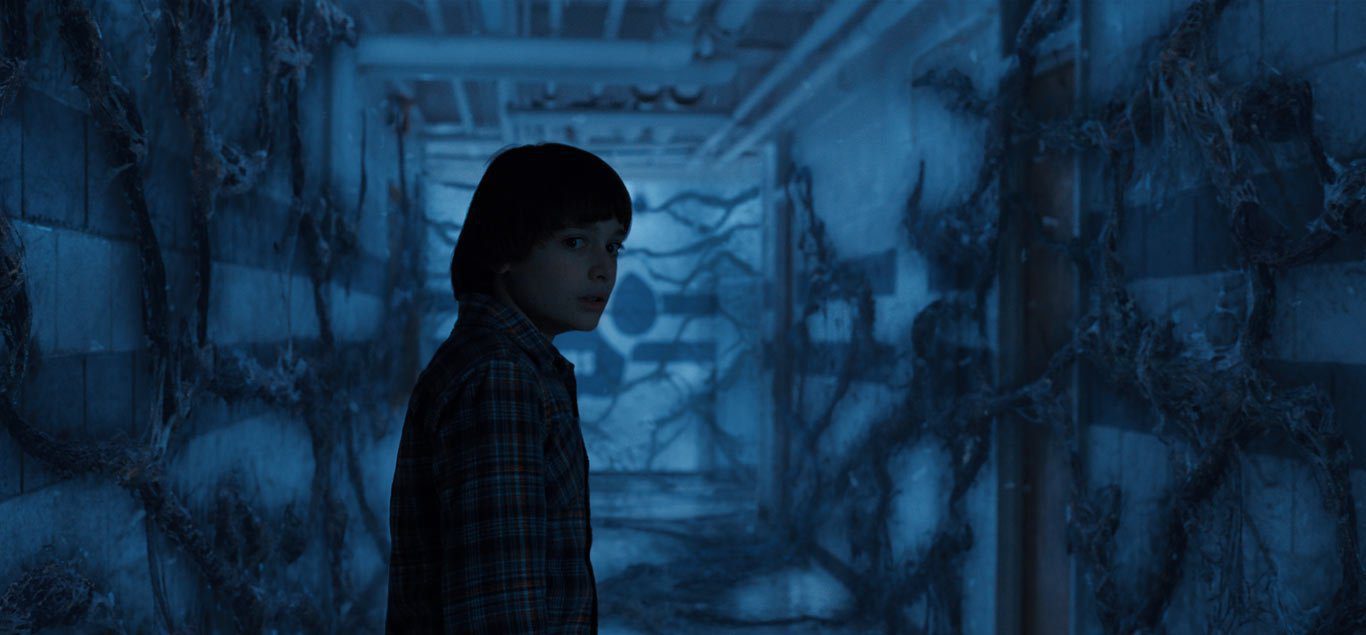
Other than Eleven, Will seems to be the keenest of the group to hold on to his childhood, particularly in Season 3, when all he wants to do is play Dungeons and Dragons with his friends. Of course, Will spent Season 1 trapped in the Upside Down and Season 2 possessed by the Mind Flayer, so it makes sense that this season he just wants to chill and play some games. His attitude could in fact have a similar root to Eleven’s—he’s seen so much darkness at such a young age that he needs to reclaim his childhood, that he wants to cling to his hope and innocence for as long as he possibly can rather than face what he knows is really out there.
It could be that, like Barb before him, he’s simply struggling with feeling neglected, now that his friends are all coupling off. There have also been hints throughout the show that Will might be gay, and that he could be so focused on his friendships and his hobbies because he’s avoiding confronting his sexuality. This would also fit in with the idea of his not wanting to deal with any more darkness. If he is gay, then confronting this fact in the mid-80s could lead to homophobia, rejection from family and friends, and violence—a very specific darkness that the straight kids won’t have to face as they start to explore their own sexuality.
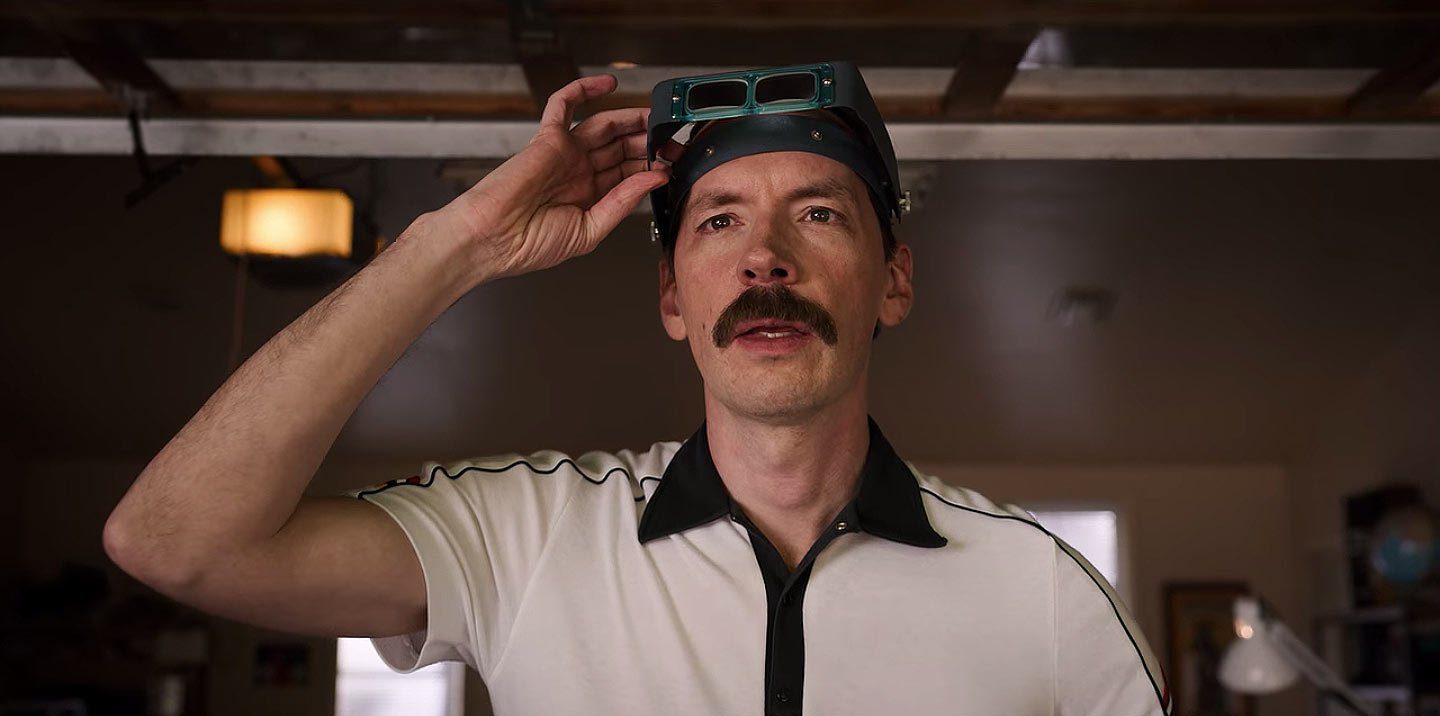
Interestingly, the adult character who seems to be the happiest and most hopeful in the show is the one most associated with children and children’s things—Scott Clarke. The middle school science teacher plays Dungeons and Dragons (so we can assume he has friends), loves his job, watches horror movies with his girlfriend, and constructs miniature train sets. Perhaps he somehow never lost his hope and innocence. Perhaps he never got sucked into the darkness. Perhaps we should all strive to be a little more like Scott Clarke, and open every curiosity door that we find.

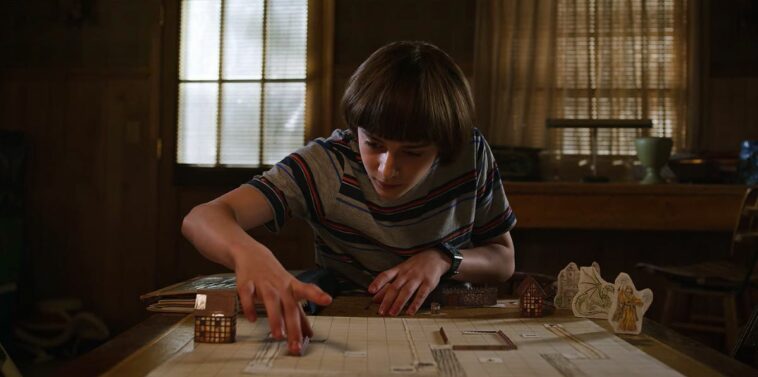
Natasha, I want to say Bravo on a very well-written piece! I never noticed the association with water or lights. And you have a great handle on characters and their motivations (especially Hopper and Eleven). Very well done!